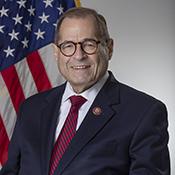0
0
0
MORE Act
1/4/2025, 11:17 AM
Summary of Bill HR 5601
The Marijuana Opportunity Reinvestment and Expungement (MORE) Act, also known as Bill 118 hr 5601, is a piece of legislation introduced in the US Congress. The main goal of the MORE Act is to decriminalize and deschedule marijuana at the federal level. This means that marijuana would no longer be classified as a controlled substance, allowing states to set their own marijuana policies without interference from the federal government.
In addition to descheduling marijuana, the MORE Act also includes provisions to expunge prior marijuana convictions, reinvest in communities that have been disproportionately impacted by the War on Drugs, and provide opportunities for individuals who have been adversely affected by marijuana prohibition to participate in the legal marijuana industry.
The MORE Act was first introduced in the House of Representatives in 2019 and passed the House in December 2020. However, the bill did not advance in the Senate at that time. The reintroduction of the MORE Act in the current Congress signals renewed efforts to address marijuana reform at the federal level. Supporters of the MORE Act argue that it is a necessary step towards ending the failed War on Drugs and addressing the racial disparities in marijuana enforcement. Critics, on the other hand, raise concerns about the potential impact of legalizing marijuana on public health and safety. Overall, the MORE Act represents a significant effort to reform federal marijuana laws and address the social and economic injustices caused by marijuana prohibition. Its fate in the current Congress remains uncertain, but it has sparked important conversations about the future of marijuana policy in the United States.
In addition to descheduling marijuana, the MORE Act also includes provisions to expunge prior marijuana convictions, reinvest in communities that have been disproportionately impacted by the War on Drugs, and provide opportunities for individuals who have been adversely affected by marijuana prohibition to participate in the legal marijuana industry.
The MORE Act was first introduced in the House of Representatives in 2019 and passed the House in December 2020. However, the bill did not advance in the Senate at that time. The reintroduction of the MORE Act in the current Congress signals renewed efforts to address marijuana reform at the federal level. Supporters of the MORE Act argue that it is a necessary step towards ending the failed War on Drugs and addressing the racial disparities in marijuana enforcement. Critics, on the other hand, raise concerns about the potential impact of legalizing marijuana on public health and safety. Overall, the MORE Act represents a significant effort to reform federal marijuana laws and address the social and economic injustices caused by marijuana prohibition. Its fate in the current Congress remains uncertain, but it has sparked important conversations about the future of marijuana policy in the United States.
Congressional Summary of HR 5601
Marijuana Opportunity Reinvestment and Expungement Act or the MORE Act
This bill decriminalizes marijuana.
Specifically, it removes marijuana from the list of scheduled substances under the Controlled Substances Act and eliminates criminal penalties for an individual who manufactures, distributes, or possesses marijuana.
The bill also makes other changes, including the following:
- replaces statutory references to marijuana and marihuana with cannabis,
- requires the Bureau of Labor Statistics to regularly publish demographic data on cannabis business owners and employees,
- establishes a trust fund to support various programs and services for individuals and businesses in communities impacted by the war on drugs,
- imposes an excise tax on cannabis products produced in or imported into the United States and an occupational tax on cannabis production facilities and export warehouses,
- makes Small Business Administration loans and services available to entities that are cannabis-related legitimate businesses or service providers,
- prohibits the denial of federal public benefits to a person on the basis of certain cannabis-related conduct or convictions,
- prohibits the denial of benefits and protections under immigration laws on the basis of an event (e.g., conduct or conviction) relating to possession or use of cannabis that is no longer prohibited under the bill,
- establishes a process to expunge convictions and conduct sentencing review hearings related to federal cannabis offenses, and
- directs the Government Accountability Office to study the societal impact of cannabis legalization.
Read the Full Bill
Current Status of Bill HR 5601
Bill HR 5601 is currently in the status of Bill Introduced since September 20, 2023. Bill HR 5601 was introduced during Congress 118 and was introduced to the House on September 20, 2023. Bill HR 5601's most recent activity was Referred to the Subcommittee on Trade. as of December 17, 2024
Bipartisan Support of Bill HR 5601
Total Number of Sponsors
3Democrat Sponsors
3Republican Sponsors
0Unaffiliated Sponsors
0Total Number of Cosponsors
86Democrat Cosponsors
86Republican Cosponsors
0Unaffiliated Cosponsors
0Policy Area and Potential Impact of Bill HR 5601
Primary Policy Focus
Crime and Law EnforcementPotential Impact Areas
- Business records
- Census and government statistics
- Child health
- Congressional oversight
- Criminal procedure and sentencing
- Department of Justice
- Drug trafficking and controlled substances
- Drug, alcohol, tobacco use
- Educational facilities and institutions
- Elementary and secondary education
- Executive agency funding and structure
- Government information and archives
- Government lending and loan guarantees
- Government studies and investigations
- Government trust funds
- Health programs administration and funding
- Immigration status and procedures
- Licensing and registrations
- Poverty and welfare assistance
- Roads and highways
- Sales and excise taxes
- School administration
- Small business
- State and local government operations
- Transportation safety and security
- Worker safety and health
Alternate Title(s) of Bill HR 5601
MORE Act
MORE Act
Marijuana Opportunity Reinvestment and Expungement Act
To decriminalize and deschedule cannabis, to provide for reinvestment in certain persons adversely impacted by the War on Drugs, to provide for expungement of certain cannabis offenses, and for other purposes.
Comments
Sponsors and Cosponsors of HR 5601
Latest Bills
Moab UMTRA Project Transition Act of 2025
Bill S 1321December 11, 2025
Federal Mechanical Insulation Act
Bill HR 3474December 11, 2025
Providing for consideration of the bill (H.R. 2550) to nullify the Executive Order relating to Exclusions from Federal Labor-Management Relations Programs, and for other purposes.
Bill HRES 432December 11, 2025
Protecting Our Courts from Foreign Manipulation Act of 2025
Bill HR 2675December 11, 2025
Tipped Employee Protection Act
Bill HR 2312December 11, 2025
A bill to redesignate the National Historic Trails Interpretive Center in Casper, Wyoming, as the "Barbara L. Cubin National Historic Trails Interpretive Center".
Bill S 790December 11, 2025
Mississippi River Basin Fishery Commission Act of 2025
Bill HR 1514December 11, 2025
Litigation Transparency Act of 2025
Bill HR 1109December 11, 2025
Southcentral Foundation Land Transfer Act of 2025
Bill HR 3620December 11, 2025
Enduring Justice for Victims of Trafficking Act
Bill S 2584December 11, 2025





